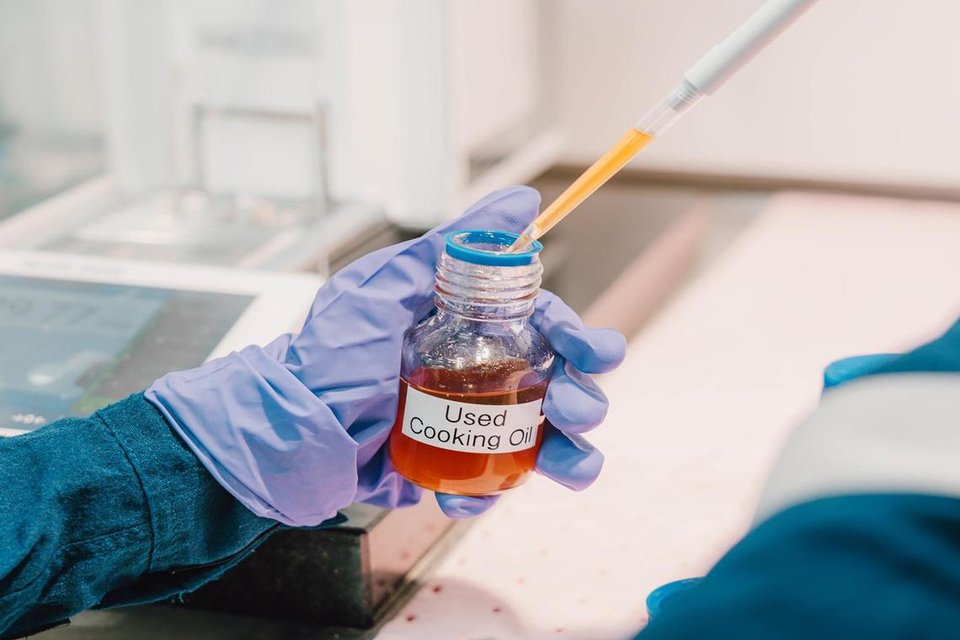Used cooking oil powers Changi Airport’s heavy vehicles in renewable diesel trial

(Photo credit: Changi Airport Group)
Source: The Straits Times
Used cooking oil collected from eateries at Changi Airport is powering some heavy vehicles, such as those used to remove debris from runways, as part of a renewable diesel trial, Changi Airport Group (CAG) said on Aug 19.
The seven vehicles have performed well since the trial at the airport started in May, said CAG.
The six-month trial is part of a push by the airport operator to find cleaner alternatives for its existing fleet of 60 vehicles deployed airside, where loading and unloading of aircraft, as well as take-offs and landings, take place.
The renewable diesel is being used to fuel heavy vehicles and specialised equipment that do not yet have viable electric variants.
CAG said electric variants are more readily available for light vehicles, such as forklifts and tractors.
Most heavy vehicles used in the aviation industry are still diesel-powered, such as airport runway sweepers.
These specialised vehicles are used to remove debris, including foreign objects, from runways and taxiways, and are crucial for maintaining runway safety.
Another example is runway rubber removal vehicles, which remove rubber deposits left by aircraft tyres, which can affect braking and safety.
The used cooking oil collected from Changi Airport eateries contributes to the feedstock – or raw material – to produce the renewable diesel used in the trial, CAG said.
The feedstock is converted into high-quality renewable diesel fuel that has a similar chemical composition to fossil diesel, it said.
This is done at a refinery in Tuas run by Neste Singapore, a renewable energy company.
Renewable diesel can be adopted as an easy replacement for fossil diesel as it can be used in existing diesel engines without modification.
Minimal adjustments are required for renewable diesel to use existing transportation, storage and distribution infrastructure.
The six-month trial will use approximately 14,000 litres of renewable diesel, said Mr Steven Bartholomeusz, Neste’s Asia-Pacific head of public and regulatory affairs.
CAG began its trial in May with a 50 per cent renewable diesel blend. This was upped to 100 per cent in August.
At 100 per cent renewable diesel, up to 90 per cent less greenhouse gas emissions will be produced over the fuel’s life cycle, when compared with fossil diesel, CAG said.
Renewable diesel can also be blended with fossil diesel in any proportion, helping companies to match the use of clean energy to their decarbonisation goals.
Mr Gerald Ng, CAG’s vice-president for regulatory affairs and sustainability, said the vehicles in the trial have performed well on the 50 per cent renewable diesel blend, and “without any impact to vehicle operations and efficiency”.
Renewable diesel trials have taken place at Changi Airport since 2024, when the Civil Aviation Authority of Singapore announced a year-long trial of the fuel, also for heavy and specialised airside vehicles.
These trials are the result of the sustainable air hub blueprint launched in 2024, which aims to help reduce domestic aviation emissions by 20 per cent (from 2019 levels) by 2030 and achieve net-zero domestic and international aviation emissions by 2050.
Other initiatives from the blueprint include a passenger levy on flights departing from Singapore from 2026 to fund the use of sustainable aviation fuel, as well as increased deployment of solar panels at the airport.
